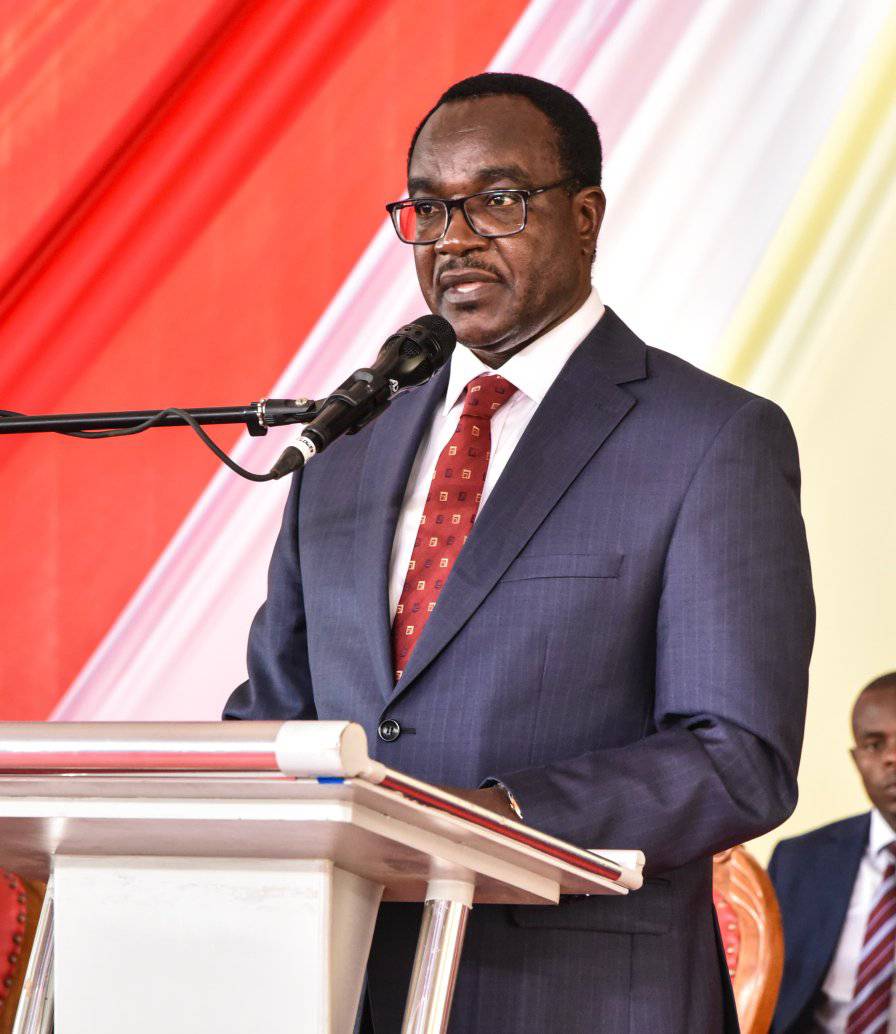Free Education Capitation in Uncertainty as Government Owes Schools Sh64 Billion
A funding crisis is jeopardizing the operations of public schools nationwide, with Education Cabinet Secretary Migos Ogamba facing intense scrutiny in Parliament over significant delays and deficits in the distribution of capitation funds.
During his appearance before the National Assembly Committee on Education, CS Ogamba acknowledged that the Ministry of Education does not have a confirmed total for the outstanding debts owed to schools. However, lawmakers estimated that the arrears could reach as high as Sh64 billion, accumulated over several years.
“I didn’t bring that figure with me. The amount mentioned by Hon. Robert Mbui, Sh64 billion, could indeed be accurate. The pressing question now is: what actions should we take, especially since we are still not receiving the budgeted amounts?” Ogamba remarked.
Documents submitted to the committee indicated that the approved annual capitation for secondary school students is Sh22,244 per learner. However, for Term 1 of 2025, the Ministry only allocated Sh8,818.61 per student, which is merely 50 percent of the intended amount.
The Ministry distributed Sh28.8 billion to support 3.2 million students, resulting in a shortfall of Sh7.5 billion for the current financial year.
For primary schools, the allocation is Sh1,420 per learner annually, distributed in a 50:30:20 ratio per term. This is significantly lower than the Sh2,238 per child recommended by the Presidential Working Party on Education Reform.
Junior secondary schools also faced funding shortages, receiving only half of the Sh15,043 allocated annually per learner.
Additional data revealed that for co-curricular activities in primary schools, only Sh36 of the Sh76 allocated per learner is actually sent to schools, with the remaining Sh40 retained by the Ministry for national-level activities. This allocation, which is less than 50 percent of the total per child, drew criticism from lawmakers who questioned the oversight and quality assurance of school programs.
Members of Parliament expressed concern over the declining state of school financing, warning that the sustainability of the country’s free education policy is at serious risk due to the delayed disbursements from the National Treasury.
Committee Chairperson Julius Melly questioned whether the country could continue to provide free education amid increasing student enrollment and stagnant funding.
“We committed to offering free and fair education. But can we genuinely uphold this commitment with rising numbers and limited resources?” Melly asked.
Deputy Minority Leader Robert Mbui, who initially raised concerns about the delayed capitation, argued that the government must be transparent about the situation and inform parents that the free education policy is no longer viable.
“It is time we recognize that free education is unsustainable under the current constraints. It would be more honest to implement cost-sharing with parents rather than maintaining the illusion of free education,” Mbui stated.
Narok Woman Representative Rebecca Tonkei echoed concerns that school leaders are being forced to operate with inadequate resources, with no government interventions to resolve the issues.
“How free is education in Kenya when principals are instructed to manage with whatever they have, even if it’s insufficient?” she questioned.
Kibra MP Peter Orero criticized the Ministry for penalizing school administrators who attempt to address funding gaps through additional fees.
“For the past decade, schools have not received full capitation. Each learner is short by about Sh9,000 annually. Yet when headteachers raise concerns or seek alternatives, they face interdiction and victimization,” Orero said.
The Ministry attributed the delays in disbursement to late releases from the National Treasury and inaccuracies in data submitted by schools to the National Education Management Information System (NEMIS).
CS Ogamba urged lawmakers to support the protection of education funds, arguing that this would help shield school financing from frequent disruptions and delays.
“We must prioritize education funding as mandated by the Constitution. Protecting the education budget will help address the ongoing shortfalls affecting students and schools,” he noted.
Ogamba acknowledged that operational challenges due to delayed funding were impacting both academic and co-curricular programs but reaffirmed the government’s commitment to free education.
“As for whether we have free education in this country, the short answer is yes. However, we are facing significant challenges that require urgent intervention,” he stated.

